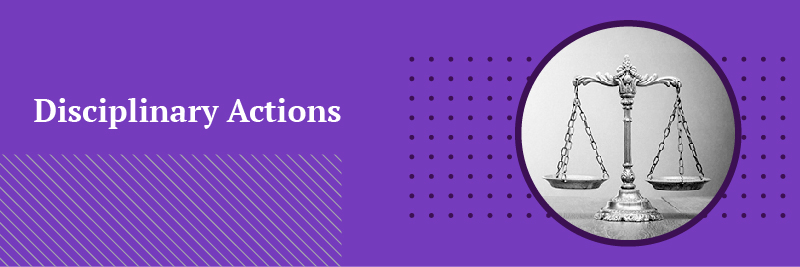
In this edition:

2022 Inaugural General Meeting – Public awareness
This article is part of a series designed to provide a better understanding of the profession and address topics raised at the 2022 Inaugural General Meeting (IGM).
The College of Immigration and Citizenship Consultants Act (College Act) states the purpose of the College is to regulate immigration and citizenship consultants in the public interest and to protect the public. The College establishes and administers qualification standards, standards of practice and continuing education requirements for licensees.
Highlighting the College’s outreach activities
To promote our role as a regulator, strengthen stakeholder relations and connect with key audiences both in Canada and abroad, the College develops and executes international, multilingual, and multi-channel marketing campaigns, and participates in key stakeholder events.
Strengthening stakeholder relations
1. Government – The College holds information sessions on our role, standards required from immigration consultants, how to find a licensed immigration consultant on our Public Register and tips on how to prevent fraud with Members of Parliament, Senators and other key government stakeholders.
2. Education – The College is committed to sustaining high standards in immigration consultancy and supporting the lifelong learning needs of RCICs. We work with Queen’s University, the University of Montréal, the Canadian Bureau for International Education (CBIE), Continuing Professional Development (CPD) providers and the Immigration and Refugee Board (IRB). We also host sessions for designated learning institutions, focusing on the regulatory requirement to use licensees when providing immigration advice and services, and the value RISIAs bring to the international education space.
3. Conferences and events – The College meets with settlement agencies, attends conferences, career fairs and other relevant events to promote our role as a regulator and the importance of working with a licensed immigration consultant.
Reaching a global audience
1. During Fraud Prevention Month in March, the College’s annual awareness campaign aims to inform those in Canada and abroad about the risks of working with unauthorized practitioners who impersonate immigration consultants to assist with immigration applications. The College’s global digital media ad campaign spreads its anti-fraud message, helping those most at risk know which steps to take to protect themselves against unauthorized practitioners, where to find our publicly available tools to help prevent fraud and how to access our Public Register.
2. The College undertakes other global digital campaigns to raise awareness about the College and the importance of using licensed immigration consultants. The Always On campaign ran from September 2022 to May 2023 and focused on reaching potential immigrants in Morocco, Tunisia, Haiti, Algeria, Dubai, Turkey, South Africa, Bangladesh, Mexico, Canada and the United States. The initiative had a combined reach of 25,535,000 impressions and ads appeared in English, French, Arabic, Turkish, Spanish and Bengali.
3. The College’s Consumer Guide features important questions to ask a Canadian immigration consultant before accepting any services, and is available in English, French and 17 other languages.
Raising public awareness and strengthening stakeholder relations are key areas of focus for the College. We will continue to develop and implement effective strategies to support this work.

Fraud Prevention Month: 2023 Campaign Recap
The College of Immigration and Citizenship Consultants (the College) is a proud member of the
Fraud Prevention Forum, which is led by the Competition Bureau, the Royal Canadian Mounted Police, and the Canadian Anti-Fraud Centre. Each March, the College raises awareness about the risks of immigration fraud and where to find publicly available College tools to help prevent fraud.
During Fraud Prevention Month, the College’s awareness campaign targeted those in Canada and abroad, and aimed to raise awareness about the risks of working with unauthorized practitioners who impersonate immigration consultants to assist with immigration applications.
Campaign highlights included:
- Daily tips on how to prevent immigration fraud across the College’s Facebook, Twitter, and LinkedIn pages
- A digital ad campaign executed in 32 countries across Asia, Africa, Europe, and the Americas and videos in Hindi and Punjabi about the importance of using an immigration consultant listed on the College’s Public Register
- A dedicated Fraud Prevention page on the College’s website with our Consumer Guide and Top Tips to Prevent Immigration Fraud
Campaign Results
- In total, 1,029,817 users visited the College’s Public Register page during the March campaign, an increase of traffic of 512% compared to February.
- Top 5 countries with the highest traffic to the College website:
| All countries |
French-speaking countries |
| Bangladesh |
Tunisia |
| Canada |
Haiti |
| Mexico |
Cameroon |
| India |
Morocco |
| South Africa |
Congo |
Although the campaign has come to an end, we encourage you to continue following our social media accounts and sharing our educational resources.

Reminder: Complying with PME course requirements
The Practice Management Education (PME) program provides Regulated Canadian Immigration Consultants (RCICs) with the competency-based education, tools, and resources needed to maintain a competent practice and ensure public protection. Under the PME Regulation, all licensees must complete the mandatory courses.
New RCICs must complete at least 1 mandatory PME course within 3 months of becoming a licensee, and all remaining mandatory PME courses within 1 year.
Completion of all mandatory PME courses is required to keep an active licence. Although the College will send periodic reminder emails, all licensees must keep track of all courses completed.
On May 4, 2023, the College suspended 139 licensees for failure to complete their required PME courses.
To return to active practice, suspended licensees must complete missing courses by the required deadline or face revocation.

The College is looking for some talented professionals to join our team.
Do you or someone you know want to be part of a team that protects the public by overseeing regulated immigration and citizenship consultants and international student advisors?
Interested in any of these opportunities? Submit your resume and a brief cover letter indicating why you feel you are a fit for the role.
For more information on these positions and the most up-to-date College career postings, visit the College's Career page.

Abuse and Fraud in Employment-based Immigration
This is an introductory piece to a series of articles where we will examine and explore abuse and fraud in employment-based immigration, one of the most serious and frequently reported issues that undermines public confidence in the immigration sector and the consultancy profession.
What is employment-based immigration abuse or fraud?
In general, it refers to situations where foreign nationals (i.e., migrant workers) are asked to pay large sums of money in exchange for an employment opportunity in Canada, which is then used to obtain either temporary or permanent resident (PR) status in Canada. While the payment for a job, a job offer, or recruitment-related fees are, in of themselves, illegal, in some instances, the misconduct can go further:
- the job or conditions do not match what was outlined to the government or the foreign national
- the job does not even exist
- coercion of the foreign national into accepting new conditions
- wage theft or deductions for recruitment costs
- misrepresenting PR pathways (time, costs, likelihood of success) to the foreign national
- threats, intimidation, and passport or other document confiscation
Employment-based immigration abuse or fraud consequences
First, it exploits the desperation and naïveté of certain clients – given their circumstances, they may not fully appreciate or understand the illegality of the practice and the risks they will face.
Second, it hurts the Canadian economy. By bringing in unqualified or unskilled workers or by misrepresenting their jobs, the Canadian labour shortages that prompted the need for specific Temporary Foreign Workers (TFWs), are left unaddressed.
Finally, this persistent abuse and fraud has a profound impact on Canadian immigration. Breaking the rules outlined in the relevant immigration and employment laws undermines the integrity of our immigration system and public confidence in immigration programs, immigrants, and the professionals who advise them.
Professional obligations and legislation
The process of hiring a foreign national should be employer-driven and licensees must exercise care when getting involved as an intermediary between the employer and foreign national. It may seem upon first glance that, because the foreign national is benefitting from the work arrangement, it would be reasonable to charge them for all the costs associated with recruiting/hiring and immigration. However, it is important to recognize that the work was primarily arranged to support Canadian employers who are in need of qualified workers, not just to support the foreign national in obtaining employment, their work permit, and possible PR. In other words, employment-based immigration is designed to mutually benefit both the employer as well as the foreign national.
A licensee must demonstrate law-abidance by complying with the relevant legislation and professional obligations when retained to assist with employment-based immigration, which may include but are not limited to:
- Labour Market Impact Assessments (LMIAs),
- LMIA-based work permits and PR,
- job-offer based Provincial Nominee Programs (PNPs), and
- registration with provincial bodies.
Licensees should educate employers they assist with recruitment on the process and fee responsibilities tied to hiring a foreign national to ensure the employers are compliant with the applicable legislation.
Licensees incur significant risks when engaging in employment-based immigration and recruitment. When confronted about their unethical and/or illegal recruitment dealings, licensees often assert that they were unaware of their professional and legal obligations. Whether true or not, this is not a defence accepted or tolerated by the College or other enforcement authorities. Taking the time to review and understand the relevant legislation
before engaging in such work, is critical to maintaining your professional obligations, your license to practice and your business.
A risky business
Those who take part in unprofessional, illegal or fraudulent conduct, including the so-called “job and LMIA selling”, would not only be subject to regulatory penalties by provincial and federal authorities and criminal sanctions, but also disciplinary measures from the College (including revocation).
A breach of any of the following may result in you losing your licence:
- Provincial employment (worker) legislation,
- the Immigration and Refugee Protection Regulations (IRPR) (specifically section 203)
- the College’s By-Law and Regulations
- the Code of Professional Conduct (particularly sections 15-17)
The Code of Professional Conduct outlines the standards of professional conduct that licensees must meet. Additionally, the College released a comprehensive Interpretation Guide that provides more in depth information on each section of the Code with examples of what can and cannot be done in your practice. The Interpretation Guide also discusses safeguards that can be followed to avoid potential problems, including those relating to foreign worker recruitment.
Subsequent articles will explore in more detail other key aspects of employment-based immigration abuse and fraud, the actual process by which it occurs, and how individuals engaging in these activities (licensees, employers, and foreign nationals) are affected financially, mentally, and emotionally.

The College’s Tribunal Committee is an independent adjudicative committee that hears and decides regulatory cases about licensees in accordance with the College’s core values of fairness, transparency, and public protection.
Below is a summary of the most recent decision of the Tribunal Committee. Full decisions are available, without charge, on the Canadian Legal Information Institute’s (CanLII) website at:
https://www.canlii.org/en/ (please enter “ICCRC” or “College of Immigration and Citizenship Consultants” in the “Document text” field).
|
Discipline Committee Decision
|
|
Licensee
|
Kazem Seyedalikhani; R418751
|
|
Company Name/Location
|
Canada Way Immigration
Coquitlam, British Columbia |
|
Proceedings
|
Written Disciplinary Hearing |
|
Findings
|
A motion was filed by the RCIC to cross-examine a witness whom the RCIC asserted was a witness for the College at a Discipline Committee hearing about a complaint filed against the RCIC. Alternatively, the RCIC wanted the testimony struck from the record on the grounds that it was hearsay, untested by cross-examination and that it was prejudicial.
To provide context for the complaint, in 2017, the witness filed a complaint against the RCIC. The 2017 Complaint has not been adjudicated. The College stated that, after the 2017 Complaint was filed, the RCIC sued the witness and others for defamation in connection with the events underlying the 2017 Complaint. The College alleged that by commencing the legal action after the 2017 Complaint had been filed, and without the knowledge or consent of the College, the RCIC committed professional misconduct. That allegation is the basis of the 2021 Complaint currently being adjudicated before the Discipline Committee.
The College contested this motion. It submitted that the witness was not a witness in the current hearing and therefore was not subject to cross-examination. The College acknowledged that the witness was interviewed by a College investigator in preparation for the hearing and that the investigator referenced the witness statement in the investigator’s testimony.
The College also submitted that the RCIC had not specified which parts of the witness statement they wanted struck or what specific prejudice they would suffer if the witness statement was entered as evidence at the hearing. The RCIC had made general comments about procedural fairness and prejudice, but these were not sufficient to support a motion to strike statements from the record. The College also submitted that the Discipline Committee lacks the jurisdiction to strike statements from the record.
|
| Outcome |
In conclusion, the Discipline Committee panel rendered a decision that the motion was dismissed as the RCIC did not make a case for either cross-examining the witness or for striking the statements they made to the College investigator.
|
|
Costs
|
N/A
|